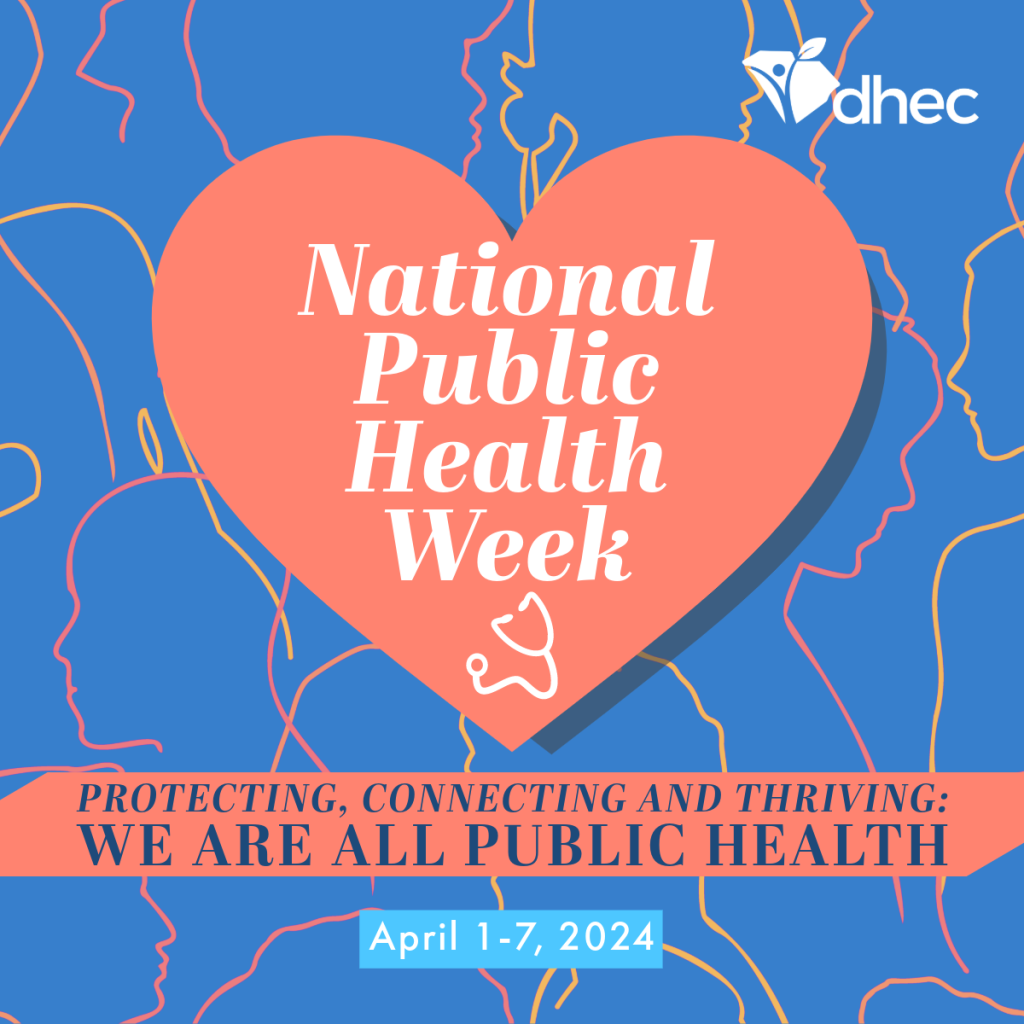By Lilian Peake, MD
Director, Health Services
When we at the SC Department of Health and Environmental Control (DHEC) say that our vision is healthy people living in healthy communities, we aren’t feeding South Carolinians some feel-good line. We mean it.
Protecting and preserving the collective health of residents and the communities in which they live is at the heart of what we do as the state’s public health agency.
Ensuring the well-being of entire populations
Although doctors do the critical work of treating diseases and injuries one patient at a time, we at DHEC are charged with addressing disease and injury for the state’s population as a whole. Instead of treating the individual who suffers a heart attack, we analyze the links between heart disease, high blood pressure, obesity and diabetes. That information allows DHEC and partners across the state to develop programs to prevent and control heart disease.
That’s the essence of public health: ensuring the well-being of entire populations. These populations can be as small as a local neighborhood or as large as a region or the entire state. When health care providers report an infectious disease outbreak, we are there. When the need arises to plan and prepare for the potential of a new threat like Zika virus entering our state, we are there. When natural disasters arise — whether a damaging hurricane or a perilous flood — we are there.
Agency’s skilled workers help build public health system
DHEC employs many skilled professionals and experts who work tirelessly to help build and maintain a public health system capable of preventing and responding to the various emergencies and outbreaks that sometimes arise. The work of these public health and environmental control professionals covers a wide range of areas, including chronic disease, aging, safe drinking water, disaster response, tobacco control and so much more.
The agency investigates nearly 400 acute disease outbreaks and 55,000 disease reports a year; conducts more than 90,000 inspections covering a diverse range of programs; and has legal responsibilities that include more than 360 state or federal statutes, regulations and provisos.
Our team uses a multiplicity of methods to help prevent and respond to public health threats and reverse negative trends. Those methods include developing educational materials and programs, administering needed services and proposing policy changes. Our work includes efforts to make sure everyone has an opportunity for a healthy life.
Helping hundreds of thousands stay healthy
With DHEC locations in all 46 counties around the state, residents make numerous clinic visits each year, whether for TB therapy or a flu vaccine. Three programs in particular comprise the vast majority of visits to our clinics: the Women, Infants and Children (WIC) Nutrition Program, Preventive Health (family planning services and STD testing/treatment) and Immunization.
DHEC helps hundreds of thousands of South Carolinians stay healthy every year. In 2016, the agency:
- Delivered high‐quality health and wellness services to 757,813 South Carolinians in our community health
- Provided nutrition counseling and assistance to 183,141 women, infants and
- Provided 60,388 newborn screening test results for babies.
- Evaluated 12,731 new sites for septic tanks, resulting in 8,988 permits.
- Performed 39,504 food safety-related inspections, investigated 4,725 complaints, and issued 2,129 permits.
- Conducted 12,800 initial investigations of potential rabies exposure, with 12,211 follow-up investigations involving wild and domestic animals.
Although we work year-round to educate and inform residents about a wide range of public health issues, this week — National Public Health Week (April 3-9) — gives us an opportunity to highlight the impact public health programs and services have on protecting and improving the well-being of all South Carolinians. We will spend this week celebrating the importance of public health and those who work in the field, while educating citizens about various health issues and how they can improve their quality of life.
It all feeds into our ultimate goal of ensuring that South Carolina remains a state where healthy people live in healthy communities.




